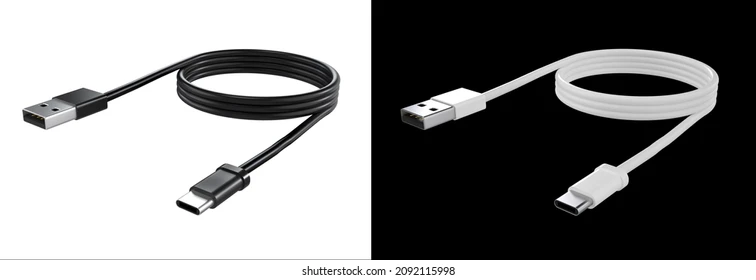USB Type-C Market to Expand by USD 17.35 Billion (2024-2028): Technavio
The global USB type-c market size is estimated to grow by USD 17.35 billion from 2024-2028, according to Technavio. The market is estimated to grow at a CAGR of 17.1% during the forecast period. Increasing adoption of premium smartphones in emerging markets is driving market growth, with a trend towards growing penetration of wireless charging outlets. However, fluctuations in prices of raw materials and rising operational costs poses a challenge.
Key market
players include AUK, Belkin International Inc., Bright Industries, ByteCable, Cabled , Diodes Inc., Farreach Electronic Co., Ltd., HIROSE ELECTRIC
Co. Ltd., Hon Hai Precision Industry Co. Ltd., Infineon Technologies AG,
MediaTek Inc., Microchip Technology Inc., Moke International Group Ltd., NXP
Semiconductors NV, ON Semiconductor Corp., Renesas Electronics Corp., Shenzhen
STC Cable, Silicon Laboratories Inc., STMicroelectronics International
N.V., Texas Instruments Inc., and Wandkey Electronic Co.,Ltd..
Market Driver
The USB Type-C
market is experiencing significant growth due to its versatility and
compatibility with various devices. This connector type offers faster data
transfer rates and charging capabilities. Major tech companies are integrating
USB Type-C ports into their latest products, including laptops, smartphones,
and tablets. The market is expected to continue expanding as more manufacturers
adopt this technology. USB Type-C's reversible design and ability to support
Power Delivery make it a preferred choice for consumers and businesses
alike.
The USB Type-C
market is booming as more and more electronic devices adopt this versatile
technology. Smartphones, tablets, laptops, and MacBooks are leading the charge,
with USB Type-C ports becoming standard. The trend is driven by the need for
faster data transfer and charging capabilities. USB Type-C is also making waves
in industries like robotics, aerospace, and automotive, where voltage
adjustment and temperature protection are crucial. With increasing internet
penetration, USB Type-C devices are finding applications in wireless computing
and consumer electronics. Thunderbolt 3, Thunderbolt 4, USB4, and DisplayPort
are key specifications that set USB Type-C apart. USB Type-C technology offers
voltage compensation and temperature protection, making it ideal for use in
commercial and private aircraft, automobiles, medical devices, and USB power
adapters and wall chargers. As the USB Type-C industry grows, it's essential to
consider import and export analysis and the environmental impact, including
electronic waste management.
Market Challenges
- The
USB Type-C market is experiencing significant growth due to its
versatility and compatibility with various devices. This connector type
offers faster data transfer speeds and charging capabilities. Major tech
companies are integrating USB Type-C ports into their latest devices,
driving market demand. The USB Implementers Forum (USB-IF) continues to
develop and promote USB Type-C technology, ensuring its widespread
adoption.
- The
USB Type-C market is growing rapidly due to its versatility and compatibility
with various electronic devices, including automotive infotainment
systems, Apple devices, commercial and private aircraft, robots, and
personal computers. The USB Type-C industry faces challenges in
transferring data at high speeds and providing sufficient power for
devices like digital cameras and voltage-hungry laptops. USB Type-C
connections in automobiles and medical devices require import-export
analysis for regulatory compliance. Thunderbolt 3, Thunderbolt 4, USB4,
and DisplayPort specifications are key technologies driving the market.
USB Type-C power adapters and wall chargers are essential accessories for
this technology. However, managing electronic waste from discarded USB
Type-C products is a significant challenge for the industry.































Leave A Comment